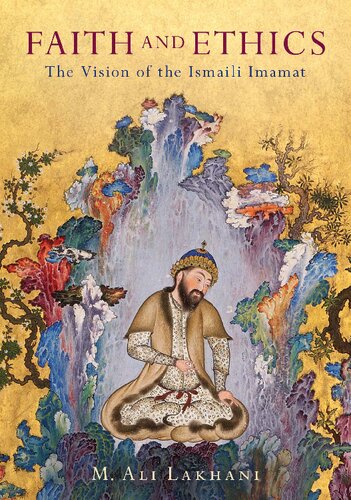

Most ebook files are in PDF format, so you can easily read them using various software such as Foxit Reader or directly on the Google Chrome browser.
Some ebook files are released by publishers in other formats such as .awz, .mobi, .epub, .fb2, etc. You may need to install specific software to read these formats on mobile/PC, such as Calibre.
Please read the tutorial at this link: https://ebookbell.com/faq
We offer FREE conversion to the popular formats you request; however, this may take some time. Therefore, right after payment, please email us, and we will try to provide the service as quickly as possible.
For some exceptional file formats or broken links (if any), please refrain from opening any disputes. Instead, email us first, and we will try to assist within a maximum of 6 hours.
EbookBell Team

4.4
52 reviewsShi`i Ismaili Muslims are unique in following for centuries a living, hereditary Imam (spiritual leader), whom they believe to be directly descended from the Prophet Muhammad. The Imam's duty has been to guide his community on the basis of Islamic principles adapted to the needs of the time.
In this insightful book, M. Ali Lakhani examines how the ideas and actions of the current Ismaili Imam, and fourth Aga Khan, Prince Karim al-Husseini, provide an Islamic response to the challenges that face Muslims in the modern era. Prince Karim's programmes, implemented mainly through
the broad institutional framework of the Aga Khan Development Network, are aimed at improving the quality of human life among the disadvantaged, regardless of their religion or ethnicity. Addressing global issues ranging from healthcare and education to culture and civil society, the Aga Khan's initiatives are founded on core Islamic principles and values. This book is the first to provide an extensive survey of the Aga Khan's aspirations, showing how the values of integrity and dignity are at the forefront of his work, with the traditional Muslim concepts of cosmopolitanism and social justice guiding his response to the stark challenges of the modern age.
At a time when criticisms and misrepresentation surrounding Islam abound, Faith and Ethics explores the religion's universal principles and values, which the author holds to be central to the spiritual and ethical issues facing both Muslims and non-Muslims in the rapidly changing modern world. The book will be of special interest to scholars researching Islam, Muslim faith and ethics and the Ismailis, and to general readers wanting a deeper understanding of Islam.